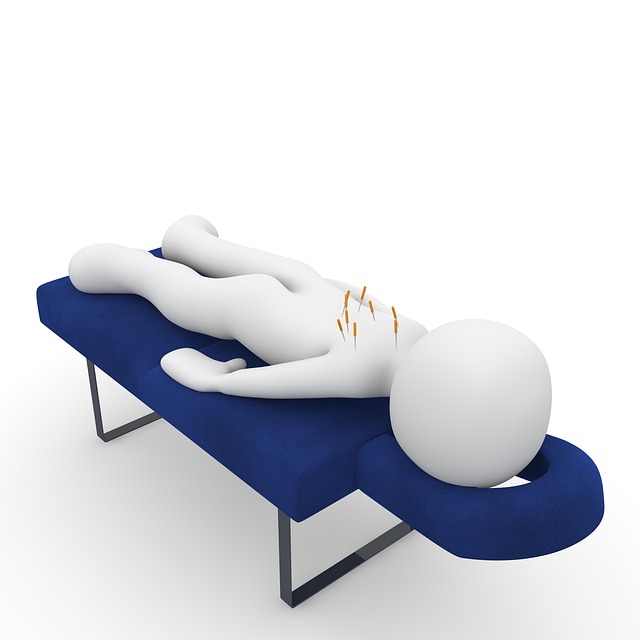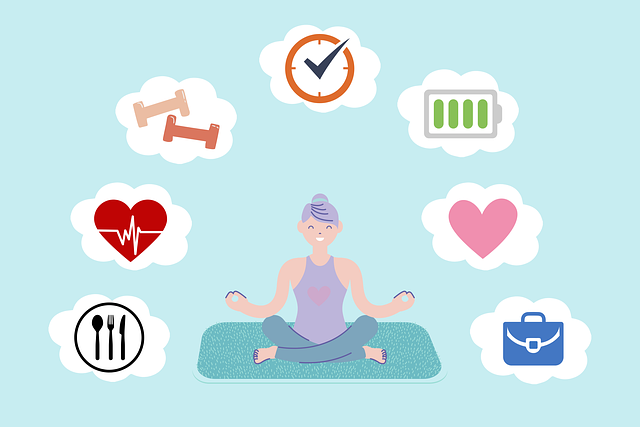Anger, triggered by threats or frustrations, requires understanding personal triggers for effective anger control therapy. Physical and emotional signs of building anger include increased heart rate, clenched fists, and feeling overwhelmed. Triggers range from external factors to internal insecurities or past traumas. Recognizing these cues is key to healthy anger management. Regular physical exercise, releasing endorphins, manages stress, breaks negative thinking patterns, and promotes emotion regulation. Aerobic exercises like walking or swimming reduce tension and enhance cognitive function. Strength training releases endorphins, provides an outlet for frustration, boosts self-control, and fosters calmness. Yoga and mindfulness practices cultivate awareness, promote relaxation, and enhance emotional regulation. Personalized anger relief routines, incorporating tailored exercises and enjoyable activities, improve consistency and effectiveness, with regular adjustments for ongoing benefits.
Anger is a powerful emotion that, if left unmanaged, can lead to stress, relationship issues, and even health problems. This article explores physical exercise routines as an effective anger control therapy. We’ll delve into understanding the signs and triggers of anger, the science behind exercise’s stress-reducing properties, and specific types of workouts—from aerobic exercises to yoga—that promote calmness and emotional resilience. Learn how to create a personalized routine for better anger management.
Understanding Anger: Signs and Triggers

Anger is a complex emotion, often a response to perceived threats or frustrations. Understanding what triggers your anger is crucial for effective anger control therapy. Common signs of building anger include heightened physical sensations like increased heart rate, clenched fists, and tense muscles. Emotional cues might be feelings of frustration, annoyance, or a sense of being overwhelmed. Triggers can vary widely; they could be external, such as traffic jams, long lines, or interpersonal conflicts, or internal, stemming from personal insecurities or past traumas. Recognizing these signs and triggers is the first step towards managing anger healthily and adopting effective physical exercise routines for anger relief.
The Role of Exercise in Stress Reduction

Physical exercise plays a pivotal role in managing and reducing stress, which is closely linked to anger control. When individuals engage in regular physical activity, their bodies release endorphins, often referred to as ‘feel-good’ hormones, that act as natural painkillers and promote a sense of well-being. This neurochemical response can significantly impact mood and emotion regulation, offering an effective way to combat the intense feelings associated with anger.
Moreover, exercise provides a healthy outlet for pent-up energy and tension, allowing individuals to channel their emotions constructively. It serves as a powerful tool in anger control therapy by helping to break the cycle of negative thinking and aggressive impulses. Whether it’s a brisk walk, a yoga session, or an intense workout at the gym, incorporating physical exercise into one’s routine can be a game-changer in managing stress and promoting better emotional health.
Aerobic Exercises for Calmness and Focus

Aerobic exercises, often referred to as cardio workouts, are an excellent way to achieve calmness and enhance focus, making them a valuable tool in anger control therapy. Engaging in activities like brisk walking, jogging, cycling, or swimming increases blood flow and releases endorphins, natural mood elevators. This physical stimulation helps reduce tension and promotes a sense of well-being, allowing individuals to better manage their anger.
Moreover, aerobic exercises improve cognitive function by increasing oxygen supply to the brain. They can enhance concentration and mental clarity, enabling people to respond calmly in stressful situations. Regular cardio workouts provide an outlet for built-up energy and frustration, offering a healthy alternative to anger-inducing behaviors.
Strength Training: Building Emotional Resilience

Strength training isn’t just for building muscle; it’s a powerful tool for emotional resilience, including managing and relieving anger. When you engage in resistance exercises like weightlifting or bodyweight workouts, your body releases endorphins, often referred to as “feel-good” hormones. These natural chemicals act as a form of anger control therapy, improving your mood and reducing feelings of stress and aggression.
Moreover, strength training provides an outlet for channeling frustration and built-up energy into a productive activity. By focusing on the physical aspect of exercise, you can temporarily detach from emotional triggers that cause anger. This practice strengthens your mental fortitude, making it easier to manage intense emotions in the long term. Regular sessions can enhance self-control, boost confidence, and contribute to a sense of calm, all of which play a vital role in maintaining healthy anger control mechanisms.
Yoga and Mindfulness for Anger Management

Yoga and mindfulness practices have gained significant attention as complementary tools for managing anger, serving as effective alternatives to traditional anger control therapy. These ancient techniques focus on cultivating awareness, promoting relaxation, and enhancing emotional regulation. By combining physical postures, breathing exercises, and meditation, yoga helps individuals connect with their bodies, calm minds, and gain a deeper understanding of their triggers.
Mindfulness, a cornerstone of many modern therapeutic approaches, encourages staying present in the moment and observing thoughts and feelings without judgment. Yoga fosters this state through its emphasis on breath awareness and body scans, enabling practitioners to recognize the physical sensations associated with anger and respond to them mindfully rather than reacting impulsively. Regular practice can lead to reduced stress levels, improved mood regulation, and enhanced overall well-being, making yoga a valuable resource for those seeking holistic anger control therapy.
Creating a Personalized Anger Relief Routine

Creating a personalized anger relief routine involves understanding what works best for your unique needs and lifestyle. Start by identifying triggers that often lead to feelings of anger. This could be stress from work, relationship issues, or even certain environments. Once identified, incorporate specific exercises tailored to address these triggers. For instance, if social situations tend to spark anger, consider joining a supportive group or taking up a team sport that encourages collaboration and positive communication.
Personalization also means integrating activities you genuinely enjoy. Whether it’s yoga, dancing, hiking, or even punching a punching bag, choosing exercises that feel satisfying can make your routine more consistent. Combine these with techniques from anger control therapy, such as deep breathing exercises or mindfulness practices, to enhance their effectiveness. Regularly review and adjust your routine to ensure it remains relevant and beneficial for managing your anger in the long term.
